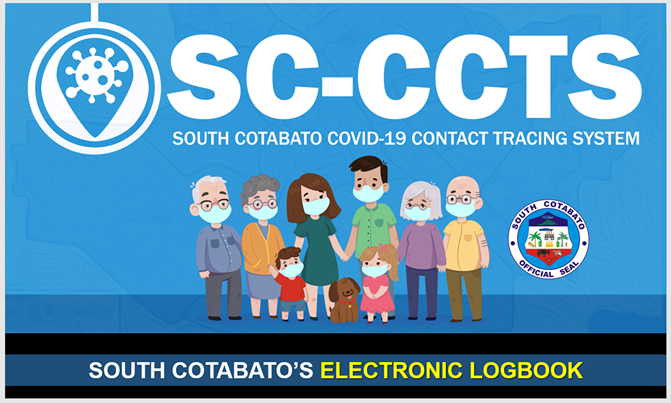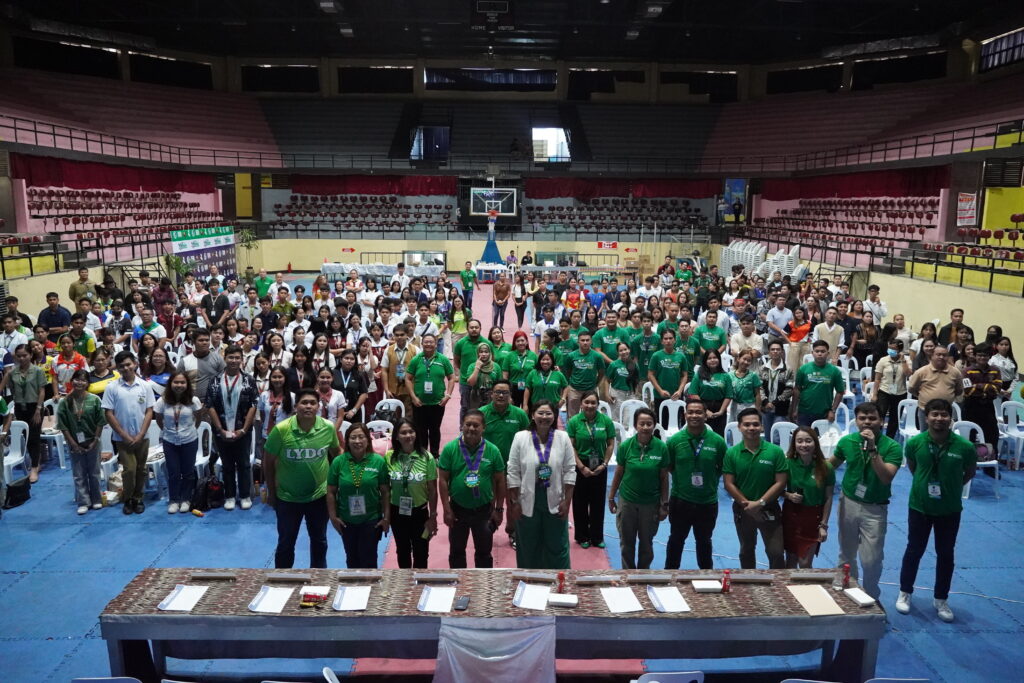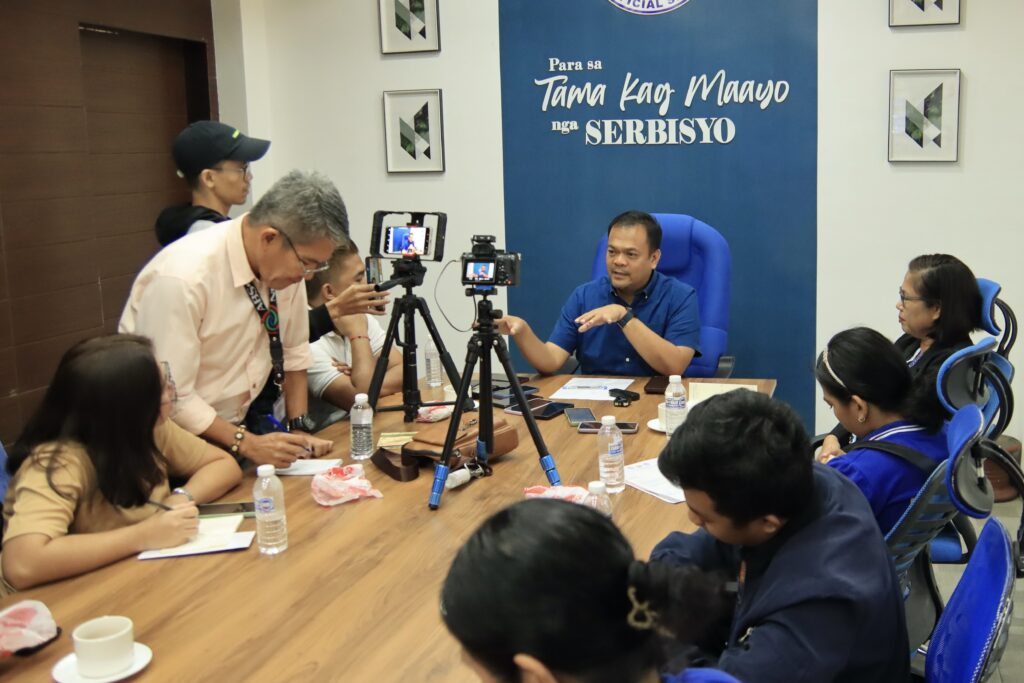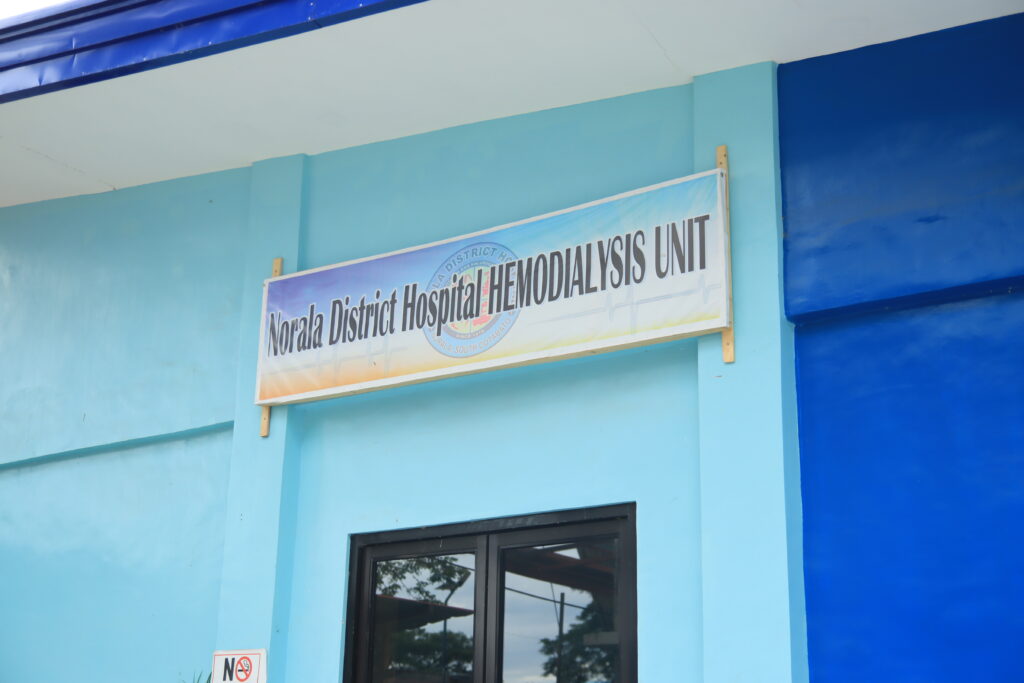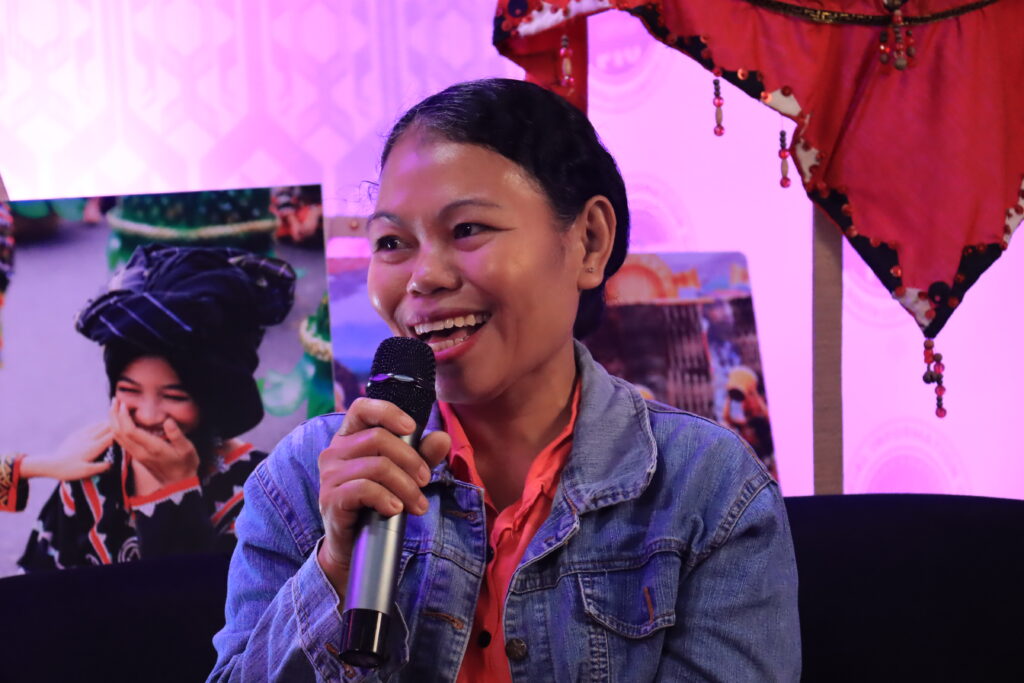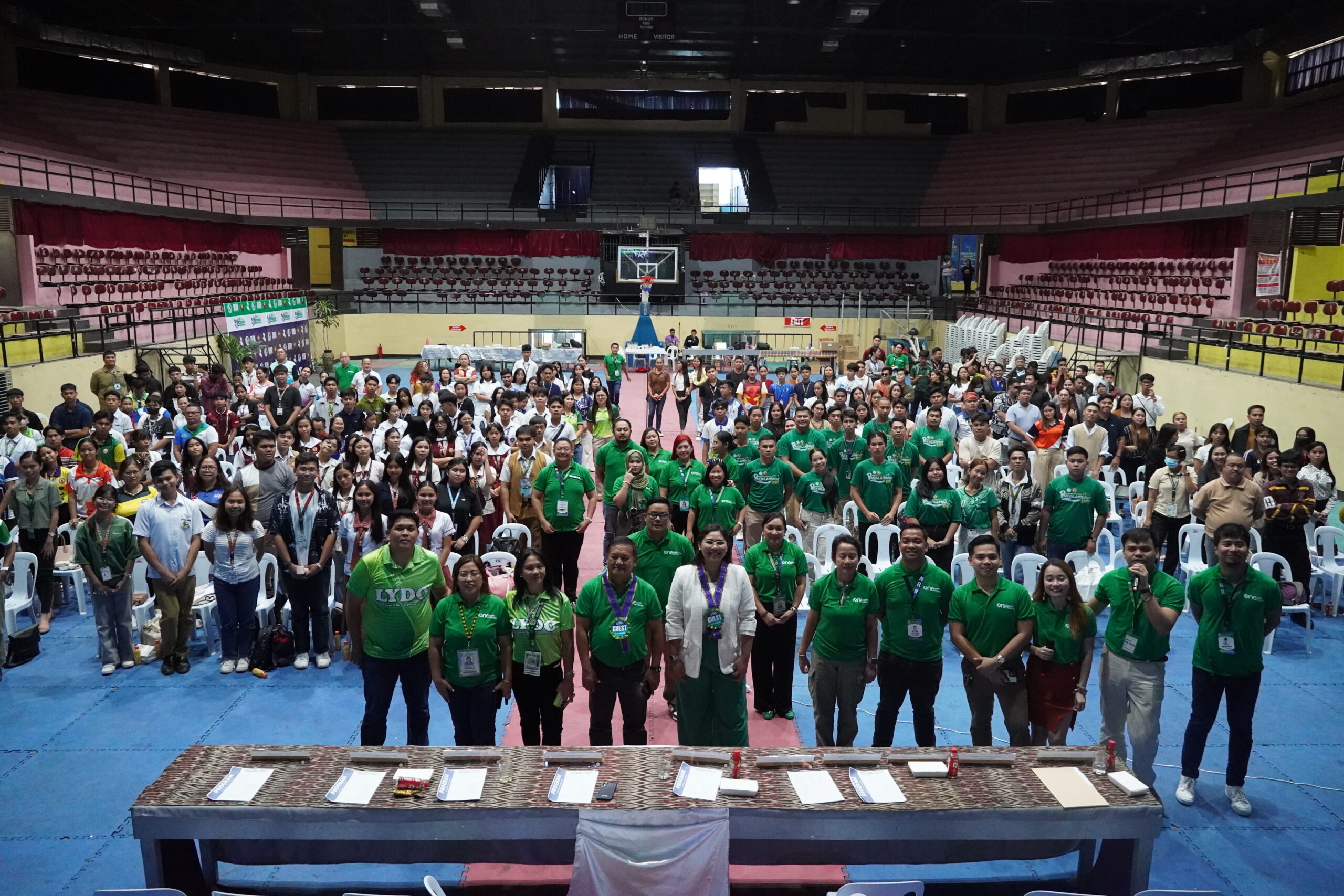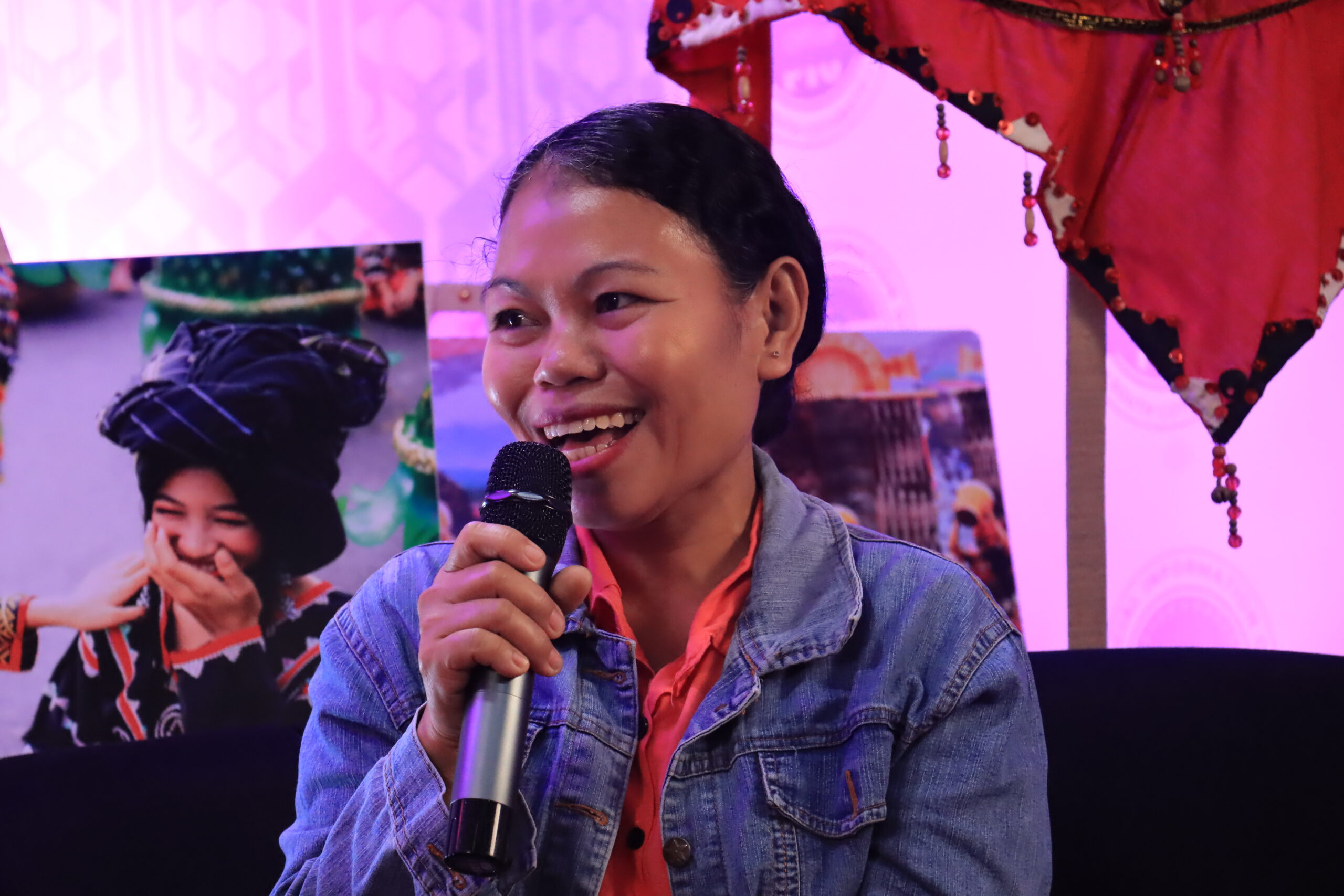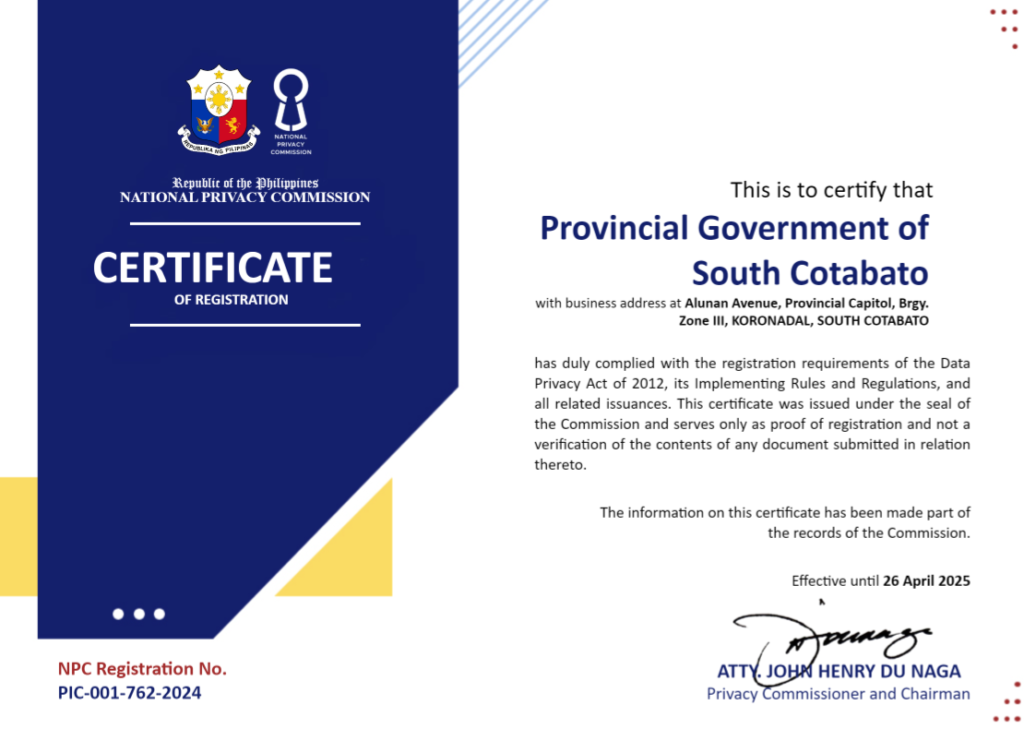Koronadal City, South Cotabato – The Special Civil Action No. 098-43 (Petition for Certiorari and Prohibition under Rule 65 of the Rules of Court) filed by petitioner Atty. Christy Joy S. Sollesta against the Provincial Government of South Cotabato (PGSC) was denied by the Regional Trial Court (RTC) Branch 43 for “lack of merit.”
The petition against the PGSC, as represented by Governor Reynaldo S. Tamayo, Jr. and the South Cotabato COVID-19 Contact Tracing System Implementing Committee, was about the alleged violation of the right to privacy of the petitioner and the people of South Cotabato including the citizens of the Republic of the Philippines regarding the implementation of Ordinance No. 13 of the Sangguniang Panlalawigan (SP) of South Cotabato.
Ordinance No. 13 or the South Cotabato COVID-19 Contact Tracing System (SC-CCTS) was signed into an ordinance on June 10, 2020, as one of the provincial government’s measures to combat COVID-19. The SC-CCTS is a localized web- and mobile-based application developed for the efficient and expeditious contact tracing of confirmed COVID-19 positive patients. It is a digitized or electronic logbook system that aims to contain the transmission of COVID-19, increase confidence of local government units (LGUs) on the safety of their population in reopening and restarting economic activities.
The certiorari and prohibition with urgent prayers for immediate issuance of a Temporary Restraining Order (TRO) and/or a Writ of Preliminary Injunction raised the issues, among others, on the legality and constitutionality of the said ordinance, specifically whether or not it violated the right of the petitioner to privacy as guaranteed by the 1987 Constitution and infringed the privacy of the petitioner’s data as shielded by Republic Act No. 10173 or the Data Privacy Act (DPA) of 2012, and whether or not a provincial government, through an ordinance, can exercise power of control over the LGUs under it and national agencies holding office within its territorial jurisdiction and require compliance on the implementation of the said ordinance.
The decision penned by Hon. Gerardo C. Braganza, Presiding Judge of RTC Branch 43 in the City of Koronadal, South Cotabato, noted that “the Court sees no infringement of any constitutional right here since she (the petitioner) is not stopped from what she wants to do entering the premises within the province, petitioner has still the option whether or not she will enter such establishment. In other words, she can still roam around and not divulge any of her personal circumstances or even not to register in the SC-CCTS so long as she will not enter an establishment within the province that requires her of the use of SC-CCTS.”
Another point asserted by the Court is that “malls are private entities, more often than not, the in charge in scanning the CCTS are private individuals, hence her right to privacy enshrined in the Constitution cannot be availed of. Basic is the rule that the rights in the Bill of Rights apply only as distraint directed against the government.”
The Court further posited that in the implementation of the said ordinance, the information that were gathered more likely than not, “does not have that absolute expectation of privacy as those information are commonly displayed in IDs in different establishments, in facebook accounts, and any other social media applications. Also, Ordinance No. 13, together with its Implementing Rules and Regulations, has specified that the Data Privacy Act must be respected in a way that no person can have access to data of another except those who are authorized. Further, the application of the SC-CCTS can and will be used only during this time of COVID-19 related health emergencies as declared by the provincial and/or national government.”
“In this time when we cannot see our enemy, the virus, even assuming arguendo that the right to privacy of the petitioner has been transgressed by the implementation of Ordinance No. 13, her right to privacy, however, will still yield to the concept of man’s inalienable right to self-preservation and self-perpetration. As held in Oposa vs Factoran, these basic rights need not even be written in the Constitution for they are assumed to exist from the inception of humandkind,” the Court added.
With regard to the other issue, the Court held that local governments are only agents of the national government, citing the case of Batangas CATV vs CA, GR. No. 138810, 2004 which provides:
“It is a fundamental principle that municipal ordinances are inferior in status and subordinate to the laws of the state. An ordinance in conflict with a state law of general character and statewide application is universally held to be invalid. The principle is frequently expressed in the declaration that municipal authorities, under a general grant of power, cannot adopt ordinances which infringe the spirit of a state law or repugnant to the general policy of the state.”
The Court stated that the will of the national government is to protect the people against the deaded coronavirus and to contain it the soonest possible time. The said ordinance “does not contravene the Constitution, but instead it conforms to it. Ordinance No. 13 strengthens the goal of the Constitution to provide a healthful and balanced ecology to the people and to give general welfare to the people.”
In the same way, the Court acknowledged the prestige and honor that the SC-CCTS has brought to the Province of South Cotabato, stating as a matter of fact, that the contact tracing app has been adopted by various local government units (LGUs) in the country, and was even recognized by the United Nations for being a practical and useful app in containing the unseen enemy, the COVID-19.
Finally, the Court stressed on the latin maxim, “salus populi est suprema lex” or the welfare of the people is the supreme law. Hence, all laws and ordinances must be construed that they were made for the good of the people.



